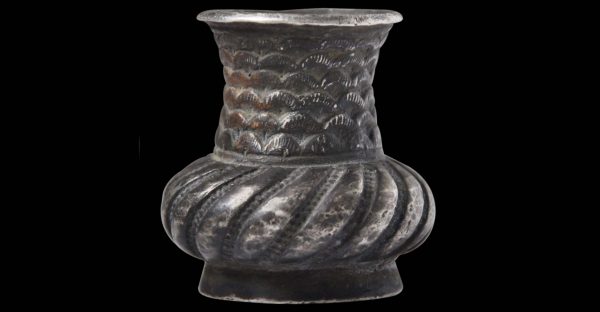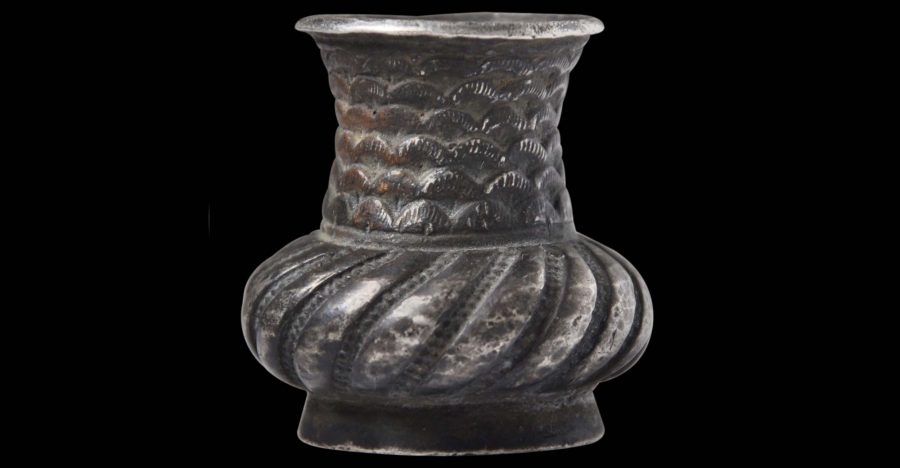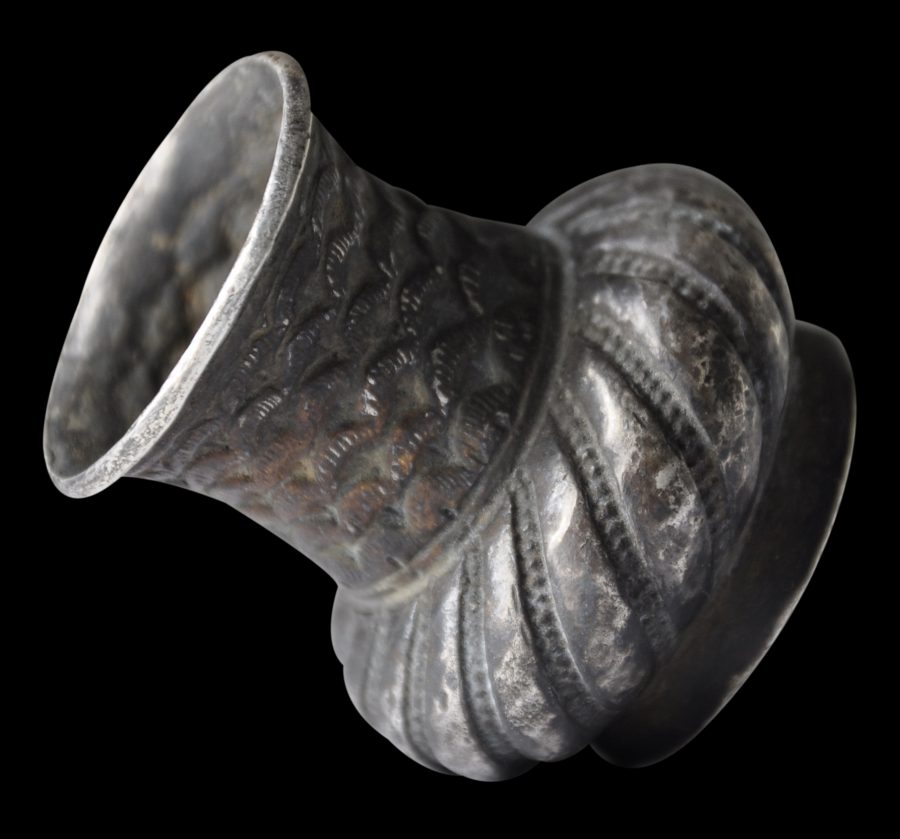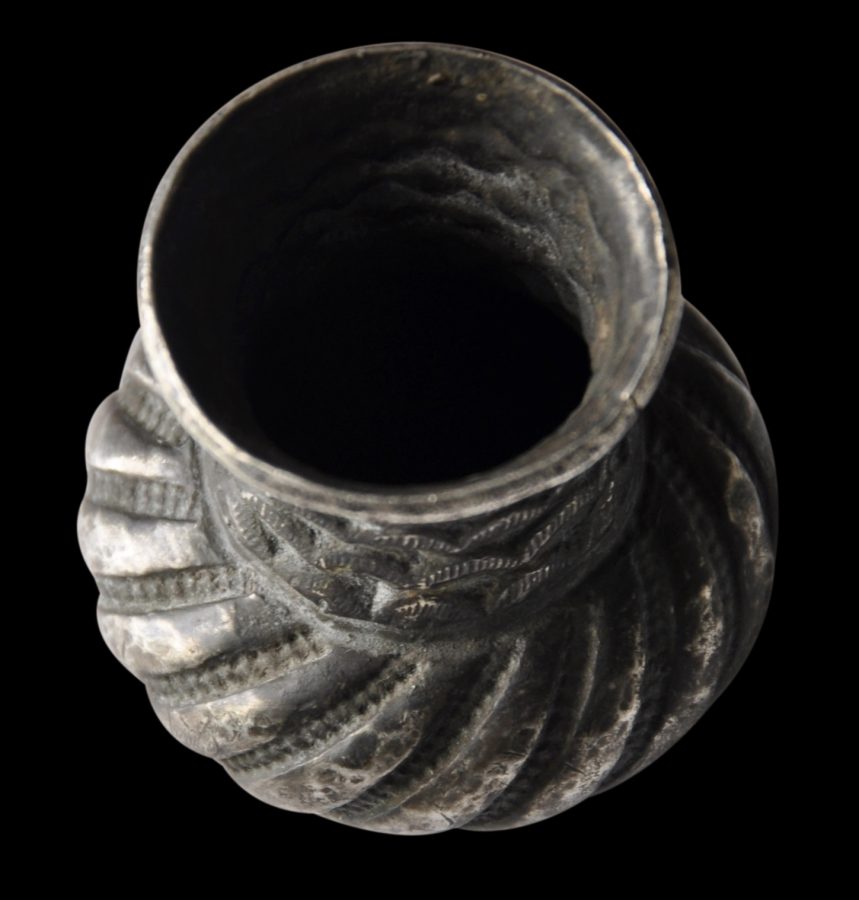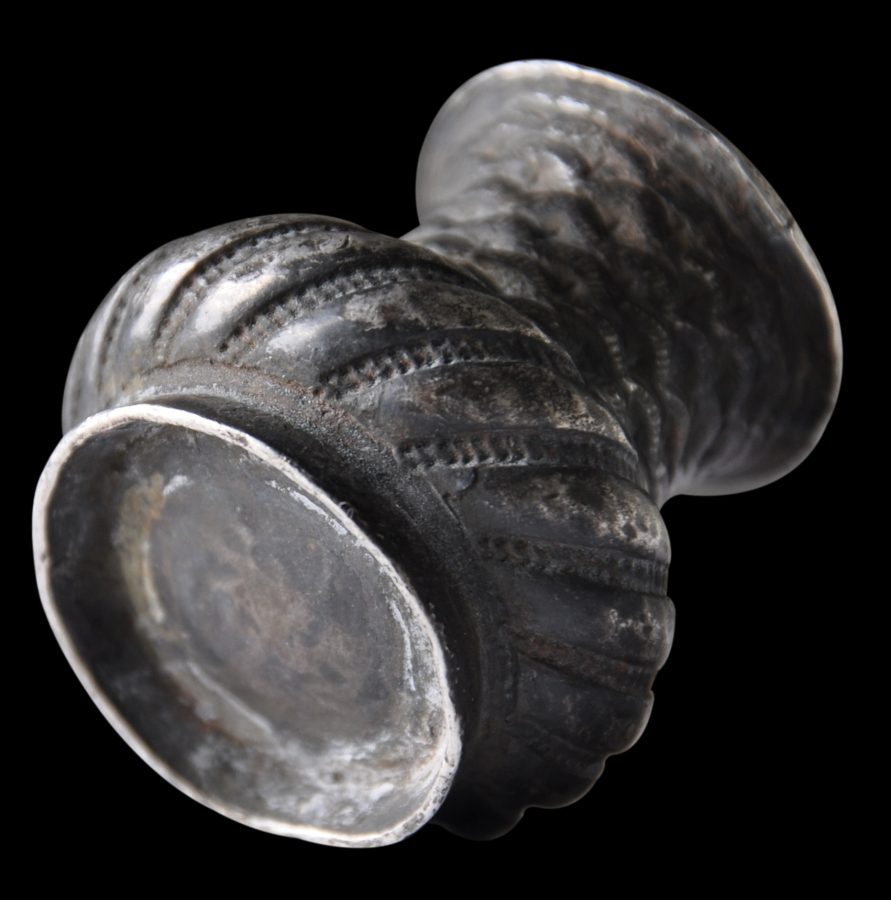This cast and chiselled silver container was used to hold antimony to be used as a kohl. The neck is just the right size to allow one’s index finger access to take come powdered antimony. (Traces of antimony are still evident inside.) Once, entirely gilded, now the gilding is most evident around the neck, and has largely worn from the body.
The shape, with its bulbous body, low foot ring, and everted rim, is usually considered to demonstrate Timurid influence, and is similar to Timurid drinking jugs that date to the 14th and 15th centuries, a form that was copied in northern India.
The body is deeply gadrooned in the manner of a type of north Indian ewers identified in Zebrowski (1997, p. 136) as 14th and 15th century, and similar spiral fluting can be seen on 16th century Indo-Muslim ewers. Najat Haidar & Sardar (2015, p. 36) illustrate a spherical bronze container that has related spiraling radials which they attribute to 14th century Deccan.
The neck is engraved with fish-scale like motif. The walls are thick; the vessel is heavy for its size.
Antimony is a lustrous gray metalloid used since ancient times in cosmetics, and used in northern India as an eyeliner. Kohl has long been associated with the Islamic world – its use is said to have been advocated by the Prophet Mohammed.
The vessel here is in excellent condition for its age. There is a small amount of compression to the foot ring but it sits flatly and this is barely evident. The vessel has an overall rich, deep patina, and has obvious age. It is sculptural and robust.
References
Allan, J.W., Metalwork of the Islamic World: The Aron Collection, Sotheby’s Publications, 1986.
Najat Haidar, N., & M. Sardar, Sultans of Deccan India 1500-1700: Opulence and Fantasy, Metropolitan Museum of Art, 2015.
Zebrowski, M., Gold, Silver & Bronze from Mughal India, Alexandria Press, 1997.


